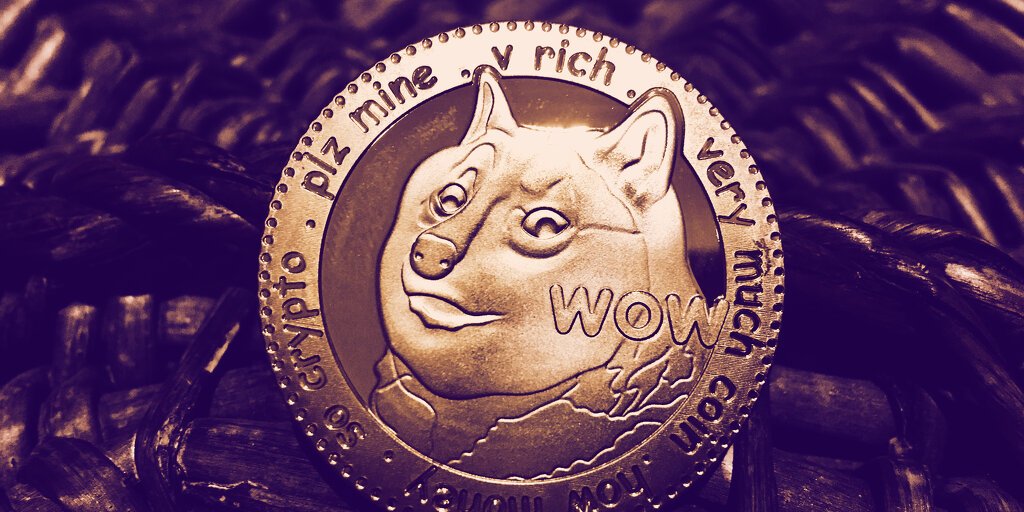Don’t look now, but Dogecoin might be for real.
It’s being added by Coinbase Pro this week, has helped turn Robinhood into one of the most downloaded trading apps, and is seeing payment transaction volume increase at a dizzying pace.
So, can we officially say that Dogecoin, invented in 2013 as a (fully-functioning) joke, is on the path to mainstream adoption?
While memes might be jokes, their power to shape conversation and collective belief are not. As the saying goes, memes move markets, with Dogecoin a prime example. It appropriated a meme of a Shiba Inu with raised eyebrows having a syntactically incorrect internal monologue. Its success has more recently given rise to meme coins such as Shiba Inu (SHIB) and Akita Inu (AKITA) that exist mostly to make risky financial investments fun.
That’s one of the reasons “Shark Tank” judge Mark Cuban gives for his Dallas Mavericks accepting DOGE payments. Cuban’s advocacy, combined with Tesla CEO Elon Musk’s meme microphone on Twitter, have expanded Dogecoin’s reach to social—and mainstream—media.
And now to Coinbase.
After years of ignoring Dogecoin, the popular US cryptocurrency exchange has decided to allow trading of the asset for its Pro users as early as Thursday (with a listing on its regular app likely to follow). A Coinbase listing adds a veneer of legitimacy to a cryptocurrency for several reasons. For starters, it’s known for its conservative approach to making assets available for trading. The exchange, for instance, does not list privacy coin Monero due to regulatory concerns and company risk management reasons.
In all, the exchange is also more selective than most of its counterparts. It lists just 63 tokens, far fewer than the 250 to 330 listed on Binance, FTX, or Huobi—though within a similar range of its US colleagues Gemini, Kraken, and Binance.US.
Moreover, Coinbase is the first cryptocurrency exchange to be publicly listed on a US stock exchange, meaning it enjoys the imprimatur of Wall Street. Dogecoin’s reputation benefits by association.
Meanwhile, Coinbase rival Robinhood, which has been listing the meme token since July 2018, said last week that it would begin allowing DOGE to be transferred off its platforms to external wallets, bringing it more in line with a traditional crypto ethos.
Robinhood, which lists just seven tokens alongside its stock offerings, is on its own journey to a public listing. The no-fee trading app for everyday investors, which wants to “democratize finance,” boasts around 20 million users. Use of the app helped send GameStop stock soaring earlier in the year, doubled the stock price of AMC today (the New York Stock Exchange halted trading), and, of course, provided an outlet for the cryptocurrency version of those “stonks”: DOGE.
Yet, while trading volume and price may act as barometers of many things, they don’t necessarily indicate adoption. After all, GameStop surged even as the video game retailer was shuttering stores. And many a crypto token has been pumped only to be unceremoniously dumped.
But data from payment processor BitPay tells another story. It’s reported a surge in Dogecoin payment transaction volume among merchants who accept crypto payments. BitPay, which allows vendors to accept and/or exchange cryptocurrency, confirmed to Decrypt last week that Dogecoin now accounts for 12.6% of its transaction volume, a nearly four-fold increase over March. Dogecoin is one of 10 cryptocurrencies set up by default to be accepted by merchants using BitPay, whose clients include Microsoft, AT&T, and WeWork.
Dogecoin’s low transaction fees mean it has traditionally been used for smaller transactions, such as tips and micropayments. According to Dogecoin developer Ross Nicoll, Elon Musk wants devs to keep working to make DOGE a transactional currency—the type you’d use to buy a cup of coffee—along the lines of Bitcoin Cash or Litecoin.
Working with Doge devs to improve system transaction efficiency. Potentially promising.
— Elon Musk (@elonmusk) May 13, 2021
And therein lies the counterargument.
Bitcoin Cash, which was developed for real (instead of for fun) and has consistently had active developers, is already traded on Robinhood, listed on Coinbase, and supported by BitPay. Moreover, BCH, BTC, ETH and most other cryptocurrencies have thought about the economics of their tokens, whereas Dogecoin’s plan is to keep printing an infinite supply. They just have better fundamentals.
Yes, but do any of those tokens have the memetic power of a Shiba Inu?




















